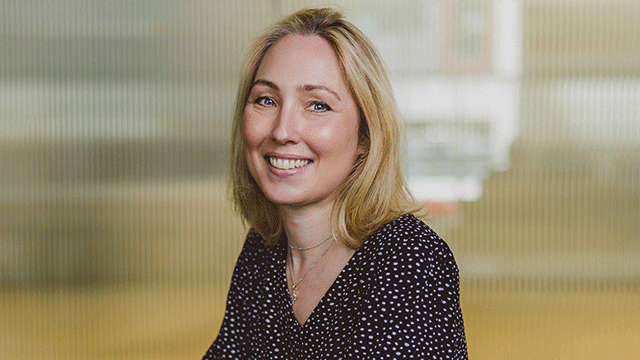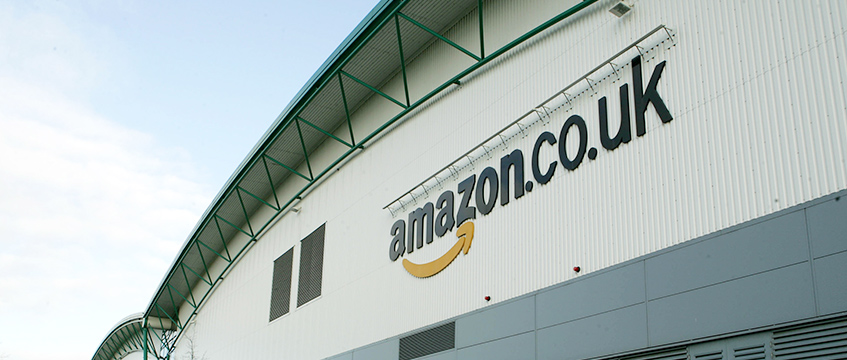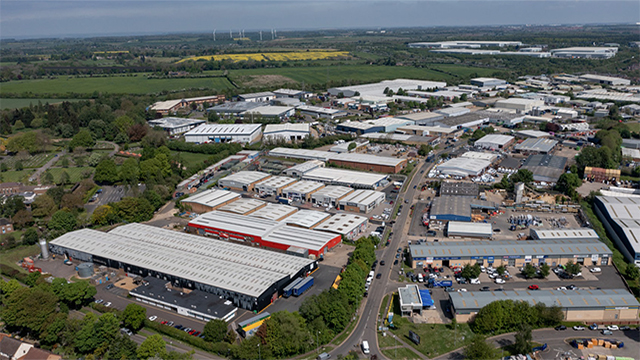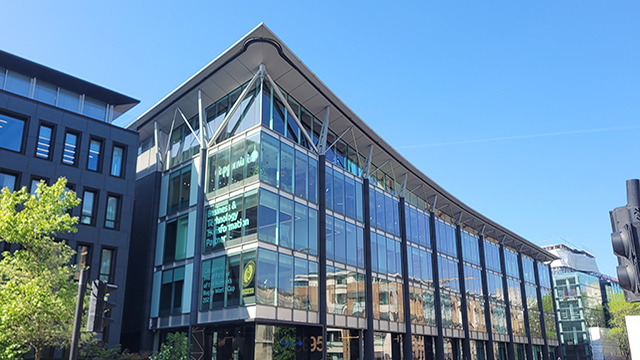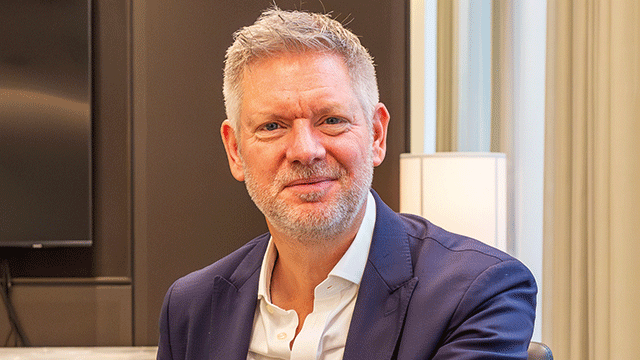Amazon closes in on €400m deal with South Koreans
Online retail giant Amazon is close to selling a portfolio of three of its cutting edge, multi-storey warehouses for around €400m (£350.4m).
Korea Investment Corporation is in exclusive talks to buy the assets, which total more than 5m sq ft.
The Project Neptune process, run by Amazon’s adviser CBRE, includes the sale-and-leaseback of centres in Avonmouth, near Bristol, Barcelona and Paris. The price agreed is thought to reflect a yield of around 3.8% for the Paris and Barcelona assets and 4.25% for the Avonmouth asset.
Online retail giant Amazon is close to selling a portfolio of three of its cutting edge, multi-storey warehouses for around €400m (£350.4m).
Korea Investment Corporation is in exclusive talks to buy the assets, which total more than 5m sq ft.
The Project Neptune process, run by Amazon’s adviser CBRE, includes the sale-and-leaseback of centres in Avonmouth, near Bristol, Barcelona and Paris. The price agreed is thought to reflect a yield of around 3.8% for the Paris and Barcelona assets and 4.25% for the Avonmouth asset.
The 1.3m sq ft triple-storey facility at Central Park in Avonmouth and 2.2m sq ft quadruple-storey Barcelona asset, located in El Prat de Llobregat, near Barcelona airport, have recently been completed.
The Paris hub in Brétigny-sur-Orge, to the south of the city, is still under construction and will total 1.6m sq ft.
The multi-storey buildings are considered to be some of the most state-of-the-art warehouses in the world, with the Barcelona fulfilment centre the flagship in Amazon’s distribution network.
Amazon has long been at the forefront of warehouse development and technology, installing solar energy systems across swathes of its portfolio and using its 16in-tall Kiva robots to carry around parcels up to the weight of a small car.
[caption id="attachment_908339" align="aligncenter" width="847"] Amazon is at the forefront of industrial tech, such as using solar panels on its warehouse roofs.[/caption]
It is understood that Amazon is currently looking at sites to build the UK’s first four-storey facility.
The retailer had been looking to set rents at below market value so it could lock in operating costs and minimise overheads in order to pass on cost savings to customers, with its distribution model operating on low margins.
Korean investors
South Korean sovereign wealth fund KIC is the latest investor from the country to pile into European real estate this year, with the surge in deals out of Seoul due in part to the loosening of regulatory restrictions on outbound capital, as well as the availability of cheap financing.
Investors from South Korea have been dominant in the London office market in particular, most notably the National Pension Service’s £1.2bn purchase of Goldman Sachs’ new London headquarters, but have also been active in the logistics and retail park sectors.
KIC has around $134bn (£101.3bn) of assets under management, of which $7.8bn – 5.8% – are real estate or infrastructure. Last year it shifted its asset allocation to alternative asset classes, inclusive of real estate, up from 13.7% to 14.4%, having achieved an 8% return on its real estate investments since it started investing in property in 2010 – the highest return of any of the asset classes it focuses on.
It targets a return of 4% plus inflation from property.
In its latest annual report, it said that “real estate and infrastructure are leading tangible assets that are ideal for hedging against inflation. They are optimal for long-term investments due to their large investment scale and the value-added opportunities they provide in accordance with economic growth”.
The jewel in the crown of KIC’s European real estate portfolio is Potsdamer Platz in Berlin, the 2.9m sq ft office complex, which it bought in 2016 alongside Brookfield for €1.3bn.
Korean capital overview
By Argie Taylor, head of APAC cross border at Cushman & Wakefield
Korean activity across Europe has remained robust this year aided by favourable exchange rates and financing markets.
London has been a top target for Korean capital in 2018, with NPS buying Goldman Sachs’ HQ, EC1, for £1.165bn (4.15% yield); Mirae buying 20 Old Bailey, EC4, for £340m (4.2% yield); and KIS acquiring 70 Mark Lane, EC3, for £200.5m (4.6% yield). There is close to a further £1bn of transactions currently under offer or recently exchanged in London. This could take total Korean transactions in the UK to a record £3.5bn in 2018.
The wave of Korean capital continues to target the eurozone countries as they have the greatest hedging premium, on top of the low cost of finance. The asset class of choice remains offices, but logistics has also seen some very competitive interest.
Traditional top target markets include Paris, Germany and Benelux, but in 2018 the physical fringes of Europe have also come into favour. Dublin has seen multiple transactions, IGIS has acquired in Barcelona, and there is currently Korean activity in Italy.
The Nordics are also under consideration; Finland has seen successful transactions and Sweden is very much on the agenda. Korean capital is also making an increased play in Central Europe, particularly in Warsaw and Prague, but we expect this interest to widen to Budapest and Bratislava while these markets show relative value.
While these fundamental drivers remain, we can expect further capital deployment in Europe in 2019.
Historically, Korean capital has generally targeted the US, Australia, Japan and Europe for outbound investments. However, with the current exchange rate environment and cost of finance this has meant equity investments into the US and Australia are more challenging. Japan and Europe have therefore benefitted from increased Korean capital flows.
Koreans are still reviewing US and Australian markets as they still want diversification, but are generally focused on debt facilities (largely mezzanine), in order to meet their return criteria.
Fundamentally, there are two recent regulatory changes have increased Korean investors’ overseas real estate investment activities in recent years.
First, the deregulation of Asset Management Companies establishment. Since the introduction of the Capital Markets Act in 2015, new AMCs can register with the Financial Services Commission if they meet certain conditions. The Act has dramatically increased the number of new AMCs established, with more than 200 now operational, many of which have been working to secure real estate deals across the world.
Second, the mega-sized investment bank promotion plan. This was announced in 2016 with the intention to help drive investment banking operations to rivals the global investment banks. The FSC has allowed securities firms with 8tn won ($4bn) or more equity capital to launch investment management accounts, in which they can combine individual customers’ savings without limit and provide loans to corporations.
NH Investment & Securities and Mirae Asset Daewoo Securities were early benefactors of this change and the likes of KB Securities joined them once it completed its acquisition of Hyundai Securities.
In addition, small and medium-sized securities companies have also increased the total equity by capital injections through parent companies or by capital increase by issuing new shares.
To send feedback, e-mail david.hatcher@egi.co.uk or tweet @hatcherdavid or @estatesgazette
Main image © Rex/Shutterstock




